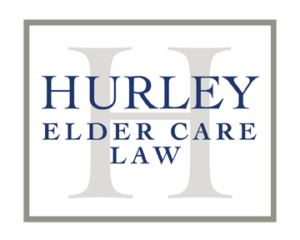Hurley Elder Care Law
Blog
In today’s digital age, scammers are finding increasingly sophisticated ways to prey on vulnerable seniors, often leaving them in dire financial straits and unable to afford basic living costs like healthcare and rent. One particularly insidious scam is the “romance scam,” targeting seniors through online dating or social media. These scammers, posing as love interests,…
Read MoreHurley Elder Care Law prides itself on providing resources for our community. For over 18 years, our team’s approach has been to educate and offering options for our clients, their family members, and professionals who serve seniors. This past year, our education team has created new, practical resources to help answer many of the most…
Read MoreAmericans love their pets! Sixty-six percent of households in the U.S. (86.9 million people) own a pet. Sometimes, aging, makes caring for a pet difficult. Perhaps the living environment isn’t conducive to the well-being of a pet. Sometimes physical limitations make it difficult to provide consistent, quality care for a pet. Technology has provided a…
Read MoreMusic therapy offers profound benefits for aging adults, particularly those living with dementia. This therapeutic approach harnesses the power of music to enhance cognitive, emotional, and social well-being. For individuals with dementia, music therapy can trigger memories, reduce agitation, and improve communication. Familiar tunes often evoke positive emotions, helping to calm anxiety and promote relaxation.…
Read MoreMultigenerational living is rising in the United States, with more families sharing a home across multiple generations. Various factors, including economic pressures, the high cost of housing, and the growing need for caregiving for aging family members, have driven this trend. While this arrangement offers several benefits, it also presents unique challenges. Why does this…
Read MoreThe Hurley Elder Care Law team has been swept up in the Olympic fever. Although very few of us have an Olympic athlete’s athleticism, determination, and commitment, we can still take steps to improve our health. Maintaining physical fitness becomes crucial for overall health and longevity as we age. Regular exercise helps aging adults improve…
Read MoreLast week, we described the role of a dementia doula, and now we will explore the benefits offered by a different type of doula called a death doula (or end-of-life doula). This non-medical professional provides holistic support to individuals and families facing the end of life. Their role is to offer emotional, spiritual, and practical…
Read MoreDoulas are not just for giving birth anymore. Over the next couple of weeks, we will explore doulas that can help aging adults. Have you heard of a dementia doula? What is a dementia doula? A dementia doula, also known as a dementia care companion, is a specialized caregiver trained to support individuals living with…
Read MoreAs students head off to college, the excitement of new experiences often overshadows practical considerations. One crucial but often overlooked aspect is the need for a Georgia Advance Directive for Healthcare. This legal document ensures that students receive the medical care they need if they become incapacitated and cannot decide for themselves. Legal documents for…
Read MoreHurley Elder Care Law just successfully completed our first series of Caregiver Classes exclusively for our caregiving clients. Last fall, our Care Coordinators, Nicole, and Kelsie, recognized that many of our clients had spouses and adult children who were burning the candle at both ends. They were tirelessly balancing their caregiver roles and responsibilities, such…
Read MoreSubscribe to our blog and monthly newsletter.




















